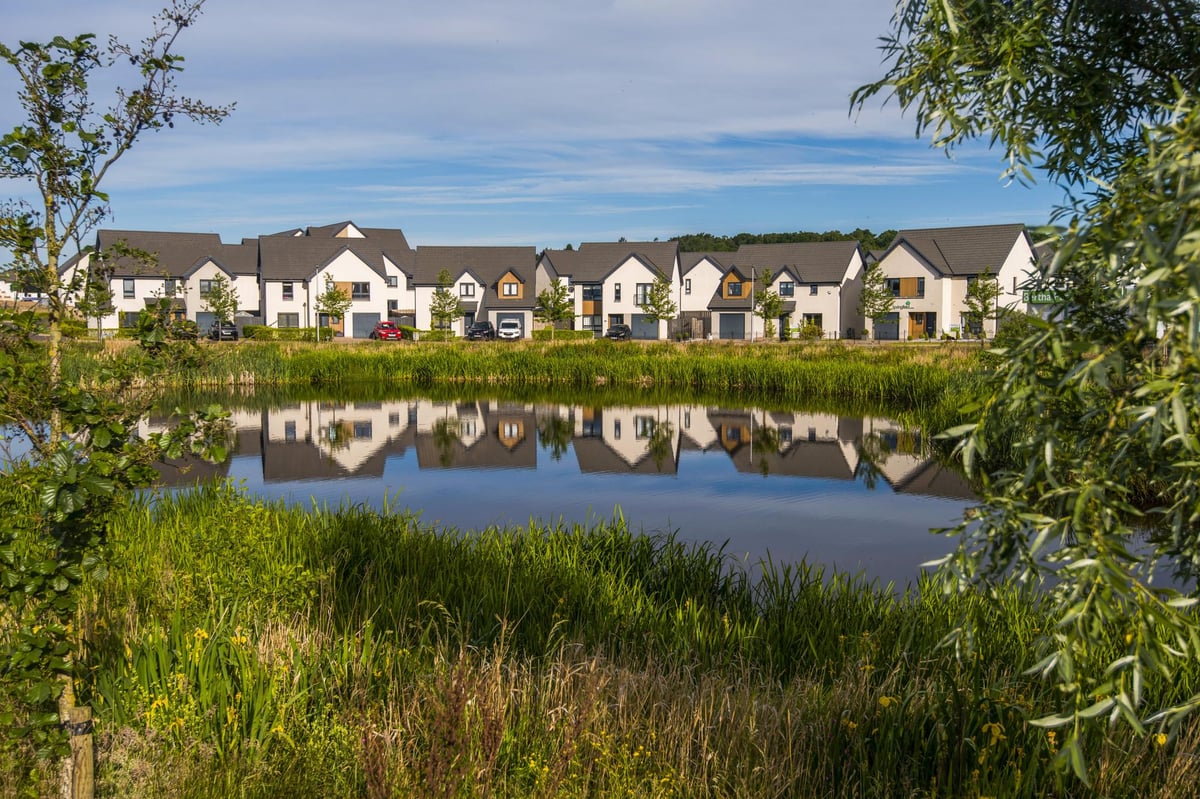Springfield Properties to tap into Scotland’s green jobs boom as pre-tax profits double to £19 million
By Scott Reid
Copyright scotsman

Springfield Properties’ chief executive said he was “very excited” about the company’s prospects in the north of Scotland after a change of focus at Scotland’s only listed housebuilder. Unveiling the group’s full-year results, Innes Smith said the business was now positioned for “greater success”. The firm is looking to capitalise on green energy growth in its core North-east market after sealing a milestone £64.2 million deal earlier this year with industry major Barratt Redrow. That agreement saw Springfield offload 2,480 plots of undeveloped land with planning consent across six sites, primarily in central Scotland. Smith told investors: “I am pleased with what we achieved this year and how we have positioned ourselves for greater success going forward. We accelerated the reduction of our bank debt and delivered an increase in both profit and revenue, despite sales continuing to be impacted by subdued market conditions. “We have made the decision to refocus our strategy to capitalise on the substantial opportunities in the north of Scotland driven by incoming energy security infrastructure and renewable development. “We have already made excellent progress in implementing this new strategy and are now in advanced discussions with infrastructure providers whereby we expect to enter an agreement in the near term for the build and multi-year lease of housing. This would allow us to receive regular income over the course of the lease as well as having further options for monetisation at its conclusion.” He added: “We are very excited about the prospects in the north of Scotland, in particular, and we continue to look to the future with great confidence.” The results for the year to the end of May revealed that revenue had risen 5.3 per cent, year on year, to £280.6 million. Much of that gain was driven by a more than doubling in land sales to £60.5m, following that headline-grabbing deal with Barratt Redrow. Contract housing revenue also more than doubled, to £11m, while affordable housing revenue rose 5.1 per cent to £49.4m. However, revenue from the core private housing business slid 15.6 per cent to £155.8m amid a challenging market backdrop. Gross margins improved to 18.6 per cent from 16.3 per cent a year earlier. Adjusted operating profit jumped 40.8 per cent to £25.2m while, at the bottom line, profit before tax almost doubled to £19m, from £9.7m the year before. The board is recommending a dividend for the year of 2p per share, doubling up on the previous year’s payout. Springfield described the pace and scale of job creation across the north of Scotland to deliver renewable energy infrastructure as “unprecedented”. It said: “This infrastructure development will require new housing for thousands of additional workers that are needed to plan, construct and operate the projects as well as the long-term growth in population as a result of the economic stimulus to the region. “Springfield has substantial landholdings across the region and within commuting distance to the new employment locations. The group has a significant and established position in the local market, with experience of delivering housing across tenures and with a historic supply chain in place. “The group also has a successful track record of operating with agility to maximise opportunities. Accordingly, Springfield believes that it is exceptionally well-placed to benefit from this regional transformation and associated demand for housing.” During the year, the group kicked off talks with infrastructure providers, the Scottish Government and councils in the north of Scotland to explore how to meet the demand for the new housing required. These discussions are now said to be at an “advanced stage with certain infrastructure providers”. It added: “The group is currently discussing Springfield building homes across a number of sites that would be leased to the infrastructure providers for a fixed multi-year period. This would generate revenue for Springfield over the course of the lease period, which is expected to be approximately four years.” At the conclusion of the lease, Springfield would expect to have “multiple attractive options”, including private housing sales and sales to affordable housing partners and to private rented sector providers. Bosses said this arrangement would enable the group to build up a stock of homes for future sale to meet growing demand, such as from job creation related to the Inverness and Cromarty Firth green freeport, as well as benefiting from the forecast increase in house and rental prices. Land bank A key element of Springfield’s strategy during the year was realising the value of the group’s sizeable land bank to reduce its bank debt. During the year, it completed profitable sales of £60.5m, which was predominantly of land in central Scotland through the deal with Barratt. At the same time, the firm strengthened its land bank in the north of the country by securing options over sites. Springfield noted that the mortgage market across the UK remained “supportive” with a high number of new build products widely available. To bolster house buying, particularly among first-time buyers, a number of consultations have been launched exploring how a relaxation in some lending criteria could help. During the year, there were 799 total completions, down on the previous year’s 878, reflecting the impact of the subdued market conditions. Private housing reservation rates remained stable, but a lengthening of the sales cycle reflected “more cautious spending, prolonged decision-making by homebuyers and slower processing by conveyancing lawyers”, the group added. Is the sun shining on the Scottish housing market?



